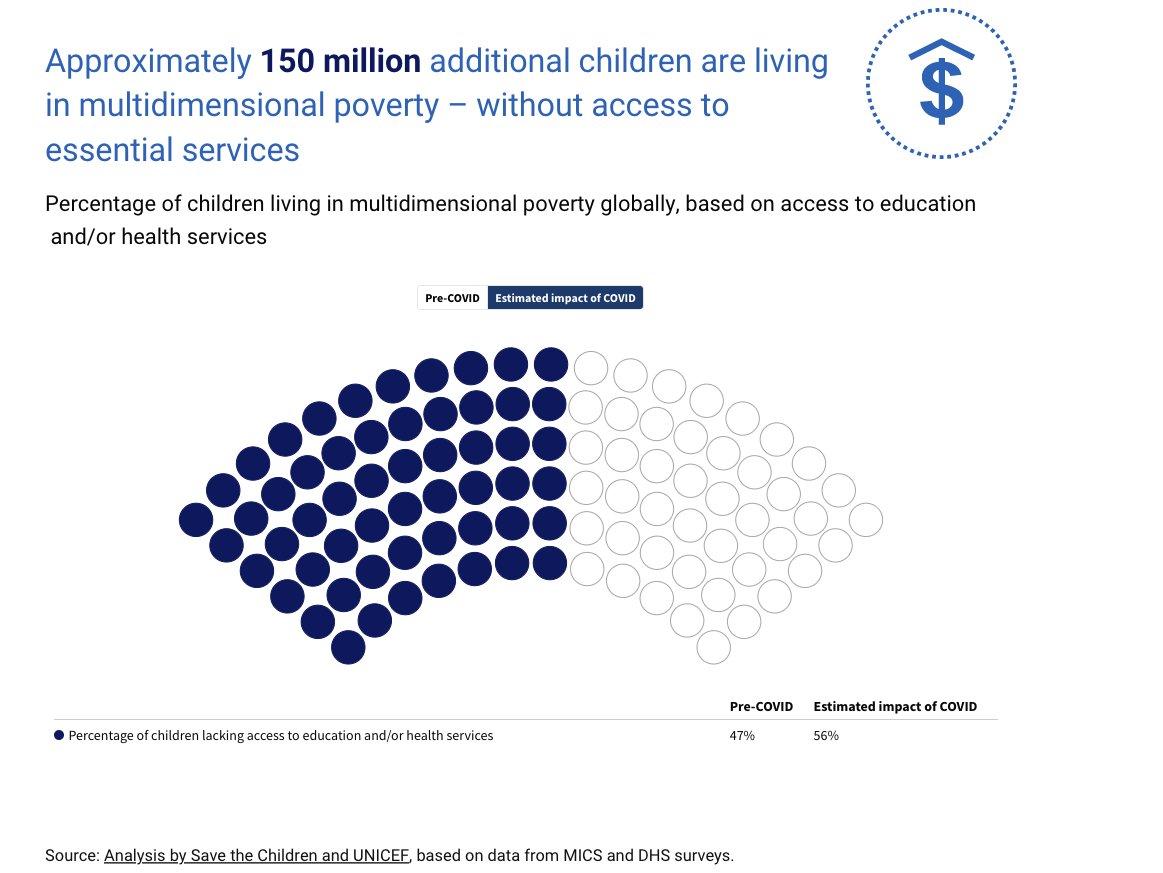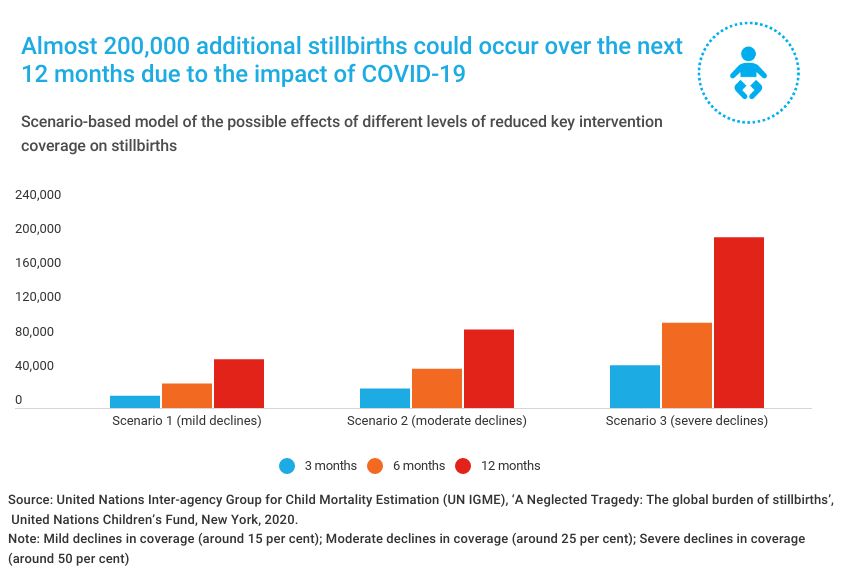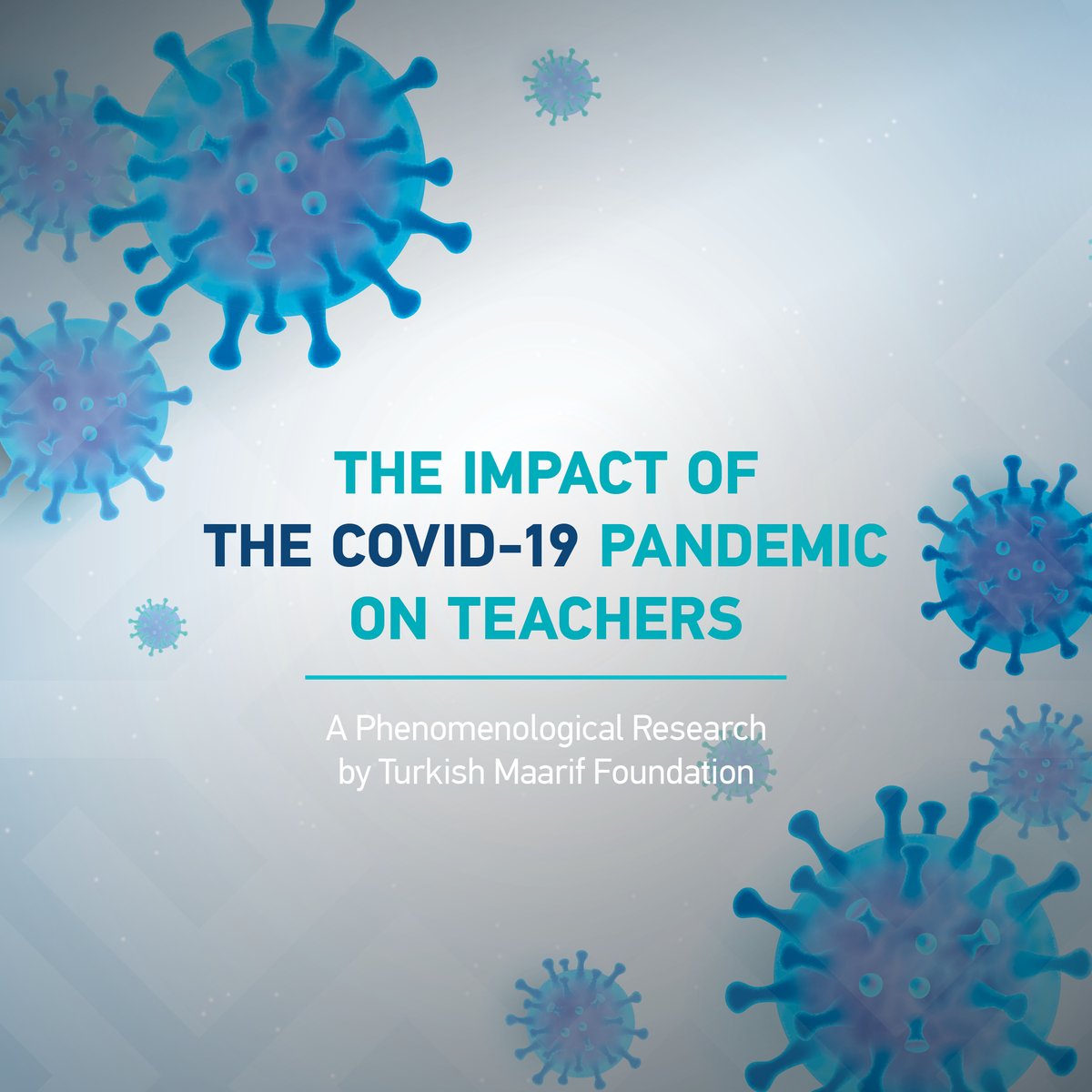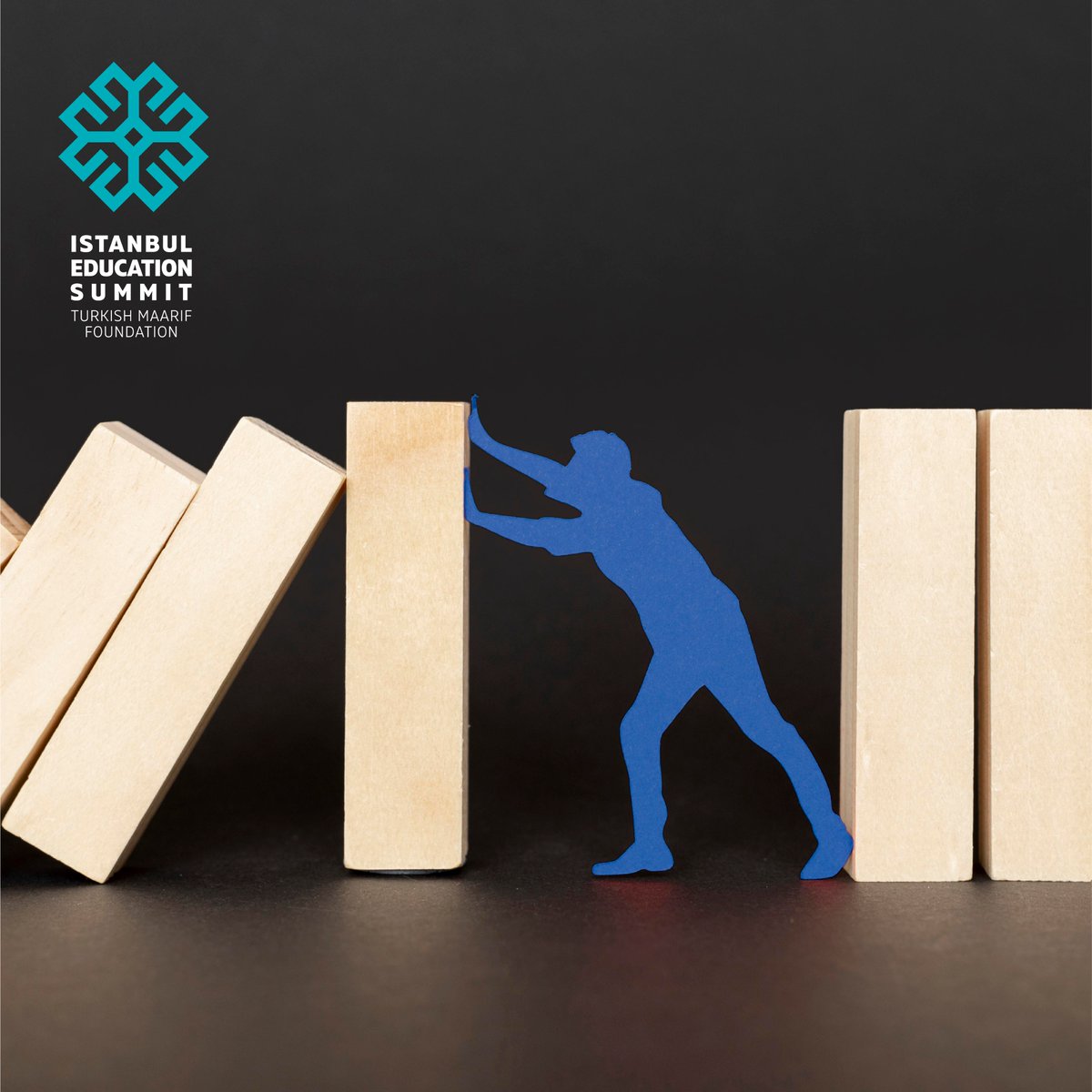
The number of children infected with #Covid-19 is less among all other age group in the global population. How about the #psychological, #social impact in on #children? Researches suggests social and psychological impact in this group were mostly severe.
To find some answer and have idea let's take a closer look at the researches and figures provided by the United Nations Children's Fund (UNICEF), which shows the magnitude of the pandemic’s #impact on #children. 

As families lose their sources of #income and home environments are turned upside down due to the socioeconomic impacts of Covid-19, #children find themselves more vulnerable to #poverty and likely to be deprived of their basic needs. 

The global #socioeconomic crisis caused by the pandemic pushed around 140 million more #children into monetary poor households by the end of 2020. The total number of children living in #poor households globally reached over 700 million in the absence of any mitigating policies.
Approximately 150 million additional #children are living in multidimensional #poverty without access to #education, health care, #housing, nutrition, sanitation or #water due to the Covid-19 pandemic, according to the analysis jointly carried out by Save the Children and UNICEF. 

Using data from more than 70 countries, around 45% of #children were severely deprived of at least one of these critical needs before the #coronavirus pandemic even hit. The situation for children living in multidimensional poverty is likely to worsen.
The potential losses that may accrue in #learning for today’s young generation, and for the development of their human capital, are hard to fathom. #Schools for more than 168 million children have been completely closed for almost an entire year due to Covid-19 lockdowns in 2020.
Furthermore, around 214 million #children globally – or 1 in 7 – have missed more than three-quarters of their in-person #learning. 188 countries imposed countrywide school closures during the #pandemic, affecting more than 1.6 billion children and youth.
At least one in three of the world’s #schoolchildren – 463 million children globally – were unable to access remote learning when Covid-19 shuttered their schools. And the actual number of #students who cannot be reached is likely significantly higher than this estimate. 

Schoolchildren around the world have lost an estimated 1.8 trillion hours of in-person learning since the onset of the #Covid-19 pandemic and subsequent #lockdowns. As a result, #young learners have been cut off from their #education and the other vital benefits schools provide.
While children appear to be largely spared the mortality impacts of Covid-19, the indirect effects stemming from strained health systems and disruptions to life-saving #health services such as immunization & antenatal care, can result in devastating increases in child #mortality
#Covid-19 is also likely to increase the number of #stillbirths. Nearly 200,000 additional stillbirths could occur in 12 months as #women are less likely or able to access #health services. 

This senseless loss of life can often be prevented with quality antenatal and delivery care but even before the pandemic hit, few women were receiving the necessary care to prevent stillbirths.
Today, more vulnerable #children are becoming malnourished due to the deteriorating quality of their diets and the multiple shocks created by the #pandemic and its containment measures.
Efforts to mitigate the transmission of #Covid-19 are disrupting #food systems, upending health and nutrition services, devastating #livelihoods, and threatening food security 

Every year, vaccines save an estimated 2 to 3 million lives, but #Covid-19 threatens to roll back decades of progress made in reducing preventable #child deaths by hindering access to these life-saving services.
According to new data, nearly 14 million #children did not receive any #vaccines in 2019. Moreover, due to #Covid-19 measures, approximately 80 million children under the age of 1 in at least 68 countries may miss out on receiving life-saving vaccines👇
data.unicef.org/resources/immu…
data.unicef.org/resources/immu…
#Covid-19 pandemic also sees 23 million children miss out on essential #vaccines in 2020 – an increase of nearly 4 million from 2019. Global coverage of the third dose of diphtheria-tetanus-pertussis (DTP3) fell from 86 % in 2019 to 83% in 2020.
New #HIV infections among young #children have decreased by half in the last decade, however, service disruptions due to #Covid-19 could reverse these gains, according to #UNICEF.
The number of new #HIV infections is projected to nearly double if 100% of the population loses access to #treatment services over a six-month period, and the number of paediatric #deaths 

The lockdowns can expose children to a range of risks. The factors related to confinement measures are likely to result in heightened tensions in the household, added stressors placed on caregivers, economic uncertainty, job loss or disruption to livelihoods, and social isolation 

The everyday lives of #girls have been overturned by the #pandemic: their physical and #mental health, their #education, and the #economic circumstances of their families and communities.
Changes like these increase the likelihood of child #marriage, and over the next decade, up to 10 million more #girls will be at risk of becoming child brides as a result of the #pandemic. 

Some other key facts from UNICEF:
- 32% of #children worldwide who show symptoms of pneumonia are not taken for care to a health provider.
- 2 out of 5 people or 3 billion people around the world lack access to basic handwashing facilities.
- 32% of #children worldwide who show symptoms of pneumonia are not taken for care to a health provider.
- 2 out of 5 people or 3 billion people around the world lack access to basic handwashing facilities.
- Worldwide, nearly 31 million #children had been forcibly #displaced at the end of 2018. This includes some 13 million child #refugees, around 1 million asylum-seeking children and an estimated 17 million children displaced within their own countries by #violence and #conflict.
- In a majority of countries, more than 2 in 3 #children are subjected to #violent discipline by #caregivers.🔚
• • •
Missing some Tweet in this thread? You can try to
force a refresh









